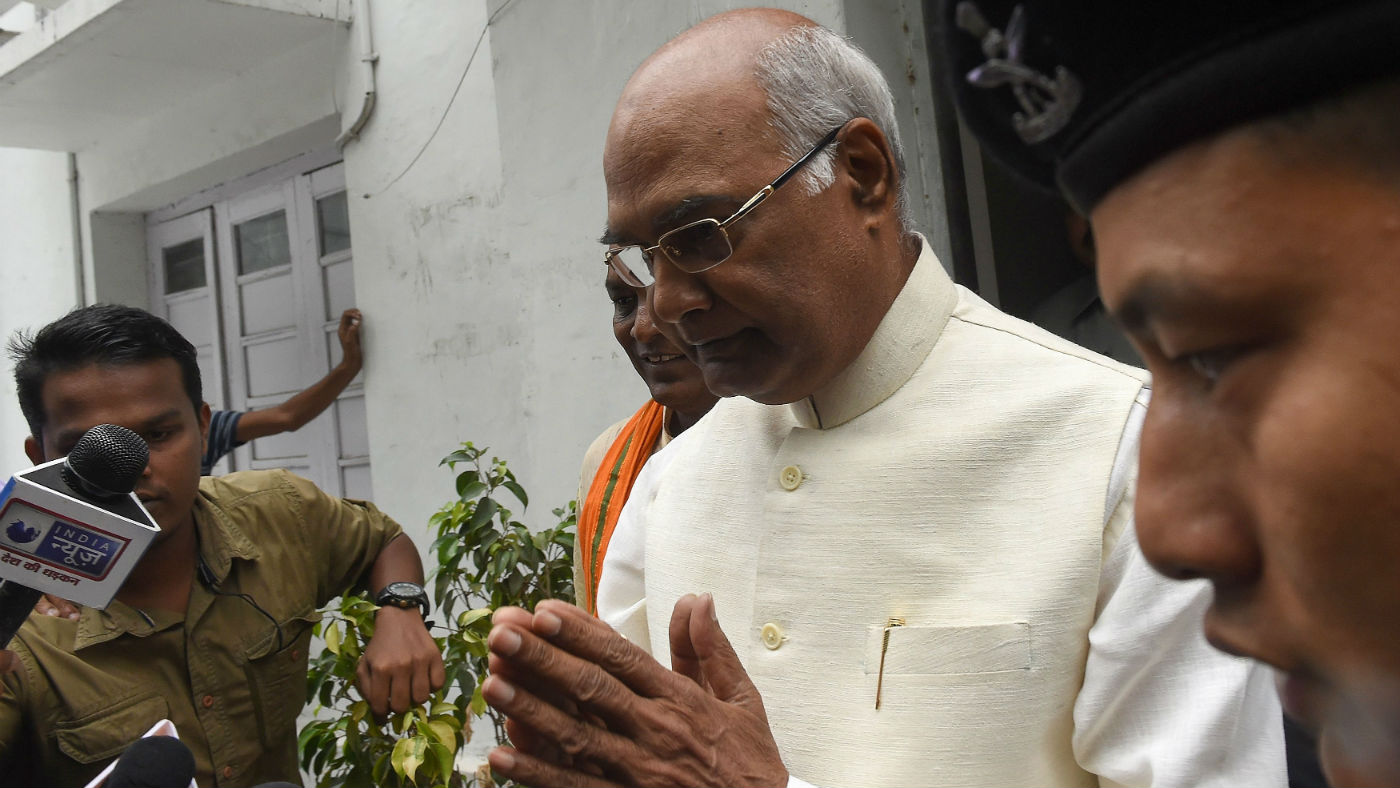Ram Nath Kovind: The 'untouchable' set to be India's next president
Member of country's lowest caste celebrates another electoral win for ruling BJP party

A free daily email with the biggest news stories of the day – and the best features from TheWeek.com
You are now subscribed
Your newsletter sign-up was successful
Ram Nath Kovind, a member of India's lowest caste, is to become the country's next president in yet another electoral win for the ruling Bharatiya Janata Party (BJP) nationalist party.
Although the results will not be formally announced until Thursday, the 71-year-old lawyer is said to have secured around 70 per cent of electoral college votes. The president is chosen by a total of 4,896 members of both houses of parliament and state assemblies.
Both Kovind and his Congress Party-backed opponent, Meira Kumar, India's first woman speaker come from India's lowest Dalit caste, formerly known as "untouchables".
The Week
Escape your echo chamber. Get the facts behind the news, plus analysis from multiple perspectives.

Sign up for The Week's Free Newsletters
From our morning news briefing to a weekly Good News Newsletter, get the best of The Week delivered directly to your inbox.
From our morning news briefing to a weekly Good News Newsletter, get the best of The Week delivered directly to your inbox.
His nomination by Prime Minister Narendra Modi in June "was widely seen as part of a decades-long strategy by Hindu nationalists to win over members of the Dalit community", says The Guardian.
Kumari Mayawati, of the Bahujan Samaj Party (BSP), told the BBC: "This is the first time that Dalit candidates are being pitched from both the sides. Losing-winning is different. But the good part is that a Dalit will become the president of India. It is a huge victory for our movement and party."
It is another electoral defeat for the once-dominant Congress party at the hands of Modi's nationalists.
"On the backfoot" even before the election, says the Indian Financial Express, the party "put a brave face" on the result. Senior members offered a veiled criticism of Kovind, saying the president "should be a person pursuing an ideology under which everybody should be equal for him".
A free daily email with the biggest news stories of the day – and the best features from TheWeek.com
India's presidents fulfil a "largely ceremonial" role, but "do play decisive roles in determining who forms the government when national elections do not produce clear results", says the BBC.
Kovind will be the second president belonging to the Dalit community, after KR Narayanan, who held the position between 1997-2002.
-
 Why are election experts taking Trump’s midterm threats seriously?
Why are election experts taking Trump’s midterm threats seriously?IN THE SPOTLIGHT As the president muses about polling place deployments and a centralized electoral system aimed at one-party control, lawmakers are taking this administration at its word
-
 ‘Restaurateurs have become millionaires’
‘Restaurateurs have become millionaires’Instant Opinion Opinion, comment and editorials of the day
-
 Earth is rapidly approaching a ‘hothouse’ trajectory of warming
Earth is rapidly approaching a ‘hothouse’ trajectory of warmingThe explainer It may become impossible to fix
-
 Epstein files topple law CEO, roil UK government
Epstein files topple law CEO, roil UK governmentSpeed Read Peter Mandelson, Britain’s former ambassador to the US, is caught up in the scandal
-
 Iran and US prepare to meet after skirmishes
Iran and US prepare to meet after skirmishesSpeed Read The incident comes amid heightened tensions in the Middle East
-
 EU and India clinch trade pact amid US tariff war
EU and India clinch trade pact amid US tariff warSpeed Read The agreement will slash tariffs on most goods over the next decade
-
 Israel retrieves final hostage’s body from Gaza
Israel retrieves final hostage’s body from GazaSpeed Read The 24-year-old police officer was killed during the initial Hamas attack
-
 China’s Xi targets top general in growing purge
China’s Xi targets top general in growing purgeSpeed Read Zhang Youxia is being investigated over ‘grave violations’ of the law
-
 Panama and Canada are negotiating over a crucial copper mine
Panama and Canada are negotiating over a crucial copper mineIn the Spotlight Panama is set to make a final decision on the mine this summer
-
 Why Greenland’s natural resources are nearly impossible to mine
Why Greenland’s natural resources are nearly impossible to mineThe Explainer The country’s natural landscape makes the task extremely difficult
-
 Iran cuts internet as protests escalate
Iran cuts internet as protests escalateSpeed Reada Government buildings across the country have been set on fire